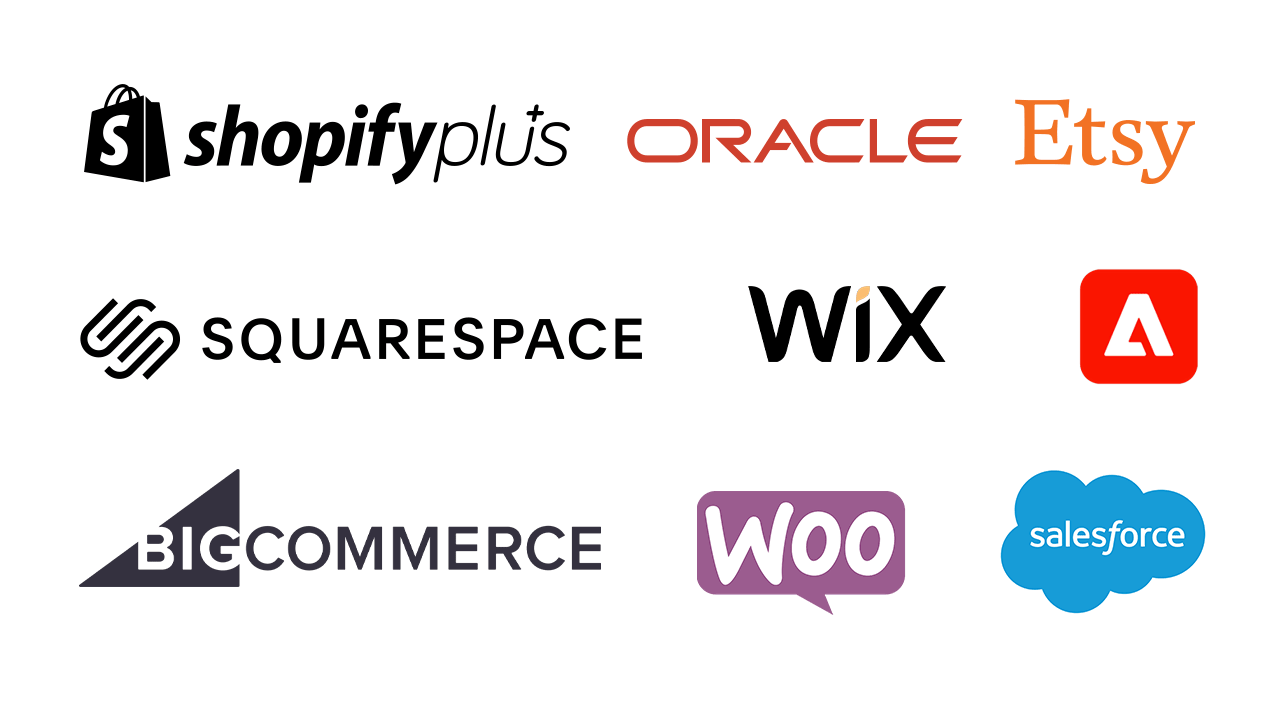Choosing the right e-commerce platform is a critical decision that can significantly impact the success of your online business. Each platform offers unique features, strengths, and limitations that cater to different needs and business sizes. This blog provides an in-depth comparison of the top e-commerce platforms to help you make an informed choice.
1. Shopify: Best for Ease of Use and Scalability
Shopify is one of the most popular e-commerce platforms, known for its user-friendly interface and extensive app ecosystem. It’s ideal for small to medium-sized businesses looking for a straightforward and scalable solution.
Key Features:
- Drag-and-drop website builder.
- Built-in payment gateway (Shopify Payments).
- Supports multi-channel selling (Amazon, Facebook, and Instagram).
- Over 6,000 apps for additional functionalities.
Pros:
- Quick setup process, even for beginners.
- Excellent customer support available 24/7.
- High scalability for growing businesses.
Cons:
- Transaction fees if not using Shopify Payments.
- Limited customization compared to open-source platforms.
Pricing:
Starts at $29/month for the Basic Plan.
Who Should Use Shopify?
Businesses that want an easy-to-use platform with all essential features to start and grow their online store.
2. WooCommerce: Best for Flexibility and WordPress Integration
WooCommerce is a free, open-source e-commerce plugin for WordPress. It’s highly customizable and ideal for businesses that already have a WordPress website or those seeking complete control over their store’s design and functionality.
Key Features:
- Seamless WordPress integration.
- Extensive library of plugins and themes.
- Supports advanced SEO features.
- Allows integration with third-party tools like CRMs and accounting software.
Pros:
- Complete customization and control.
- No ongoing subscription costs.
- Strong community support and resources.
Cons:
- Requires hosting, plugins, and some technical expertise.
- Costs can add up for hosting, security, and premium extensions.
Pricing:
Free, but additional costs for hosting (around $10–$50/month) and paid plugins.
Who Should Use WooCommerce?
Businesses with a WordPress website or those needing advanced customization and flexibility.
3. BigCommerce: Best for Large Catalogs and Scalability
BigCommerce is a robust e-commerce platform built for businesses looking for scalability and advanced features. It’s an excellent choice for companies with large product catalogs or high sales volumes.
Key Features:
- No transaction fees on any plan.
- Advanced SEO tools and multi-channel selling capabilities.
- Built-in features like gift cards, custom discounts, and multi-currency support.
Pros:
- Great for SEO-focused businesses.
- Highly scalable for growing enterprises.
- Comprehensive reporting and analytics tools.
Cons:
- Limited free themes compared to Shopify.
- Slightly steeper learning curve for beginners.
Pricing:
Starts at $29.95/month for the Standard Plan.
Who Should Use BigCommerce?
Businesses with large product inventories or high-growth ambitions looking for a scalable platform.
4. Squarespace: Best for Creative and Visual Businesses
Squarespace is a website builder that also offers e-commerce capabilities, making it an excellent option for creative entrepreneurs and small businesses focused on design aesthetics.
Key Features:
- Award-winning design templates.
- Built-in blogging tools.
- Inventory and order management features.
- Supports digital and physical product sales.
Pros:
- Visually appealing templates.
- Simple, all-in-one solution.
- Good for small businesses with fewer technical needs.
Cons:
- Limited advanced e-commerce features compared to Shopify and BigCommerce.
- Fewer third-party integrations.
Pricing:
Starts at $23/month for the Business Plan (e-commerce enabled).
Who Should Use Squarespace?
Businesses in creative industries, such as photography, art, or fashion, that prioritize design and simplicity.
5. Magento (Adobe Commerce): Best for Enterprises
Magento is an open-source e-commerce platform tailored for large businesses with complex requirements. It offers unparalleled flexibility and scalability but requires significant technical expertise.
Key Features:
- Advanced customization capabilities.
- Support for multiple languages, currencies, and stores.
- Scalable architecture for enterprise-level operations.
Pros:
- Complete control over design and functionality.
- Ideal for businesses with specific requirements.
- Strong support for global e-commerce operations.
Cons:
- Expensive to set up and maintain.
- Requires a dedicated developer or IT team.
Pricing:
Free for the open-source version, but enterprise solutions start at around $15,000/year.
Who Should Use Magento?
Large enterprises with technical resources and a need for advanced customization and scalability.
Conclusion: Choosing the Right E-commerce Platform
When choosing an e-commerce platform, consider your business’s size, goals, budget, and technical expertise.
- For ease of use and scalability, go with Shopify.
- For customization and flexibility, WooCommerce is ideal.
- For large-scale operations, BigCommerce or Magento are excellent options.
- For creative businesses, Squarespace offers unmatched design templates.
Need help choosing the right e-commerce platform for your business? Contact Brina Solutions for expert advice and tailored strategies to set up and grow your online store!








Leave a Reply